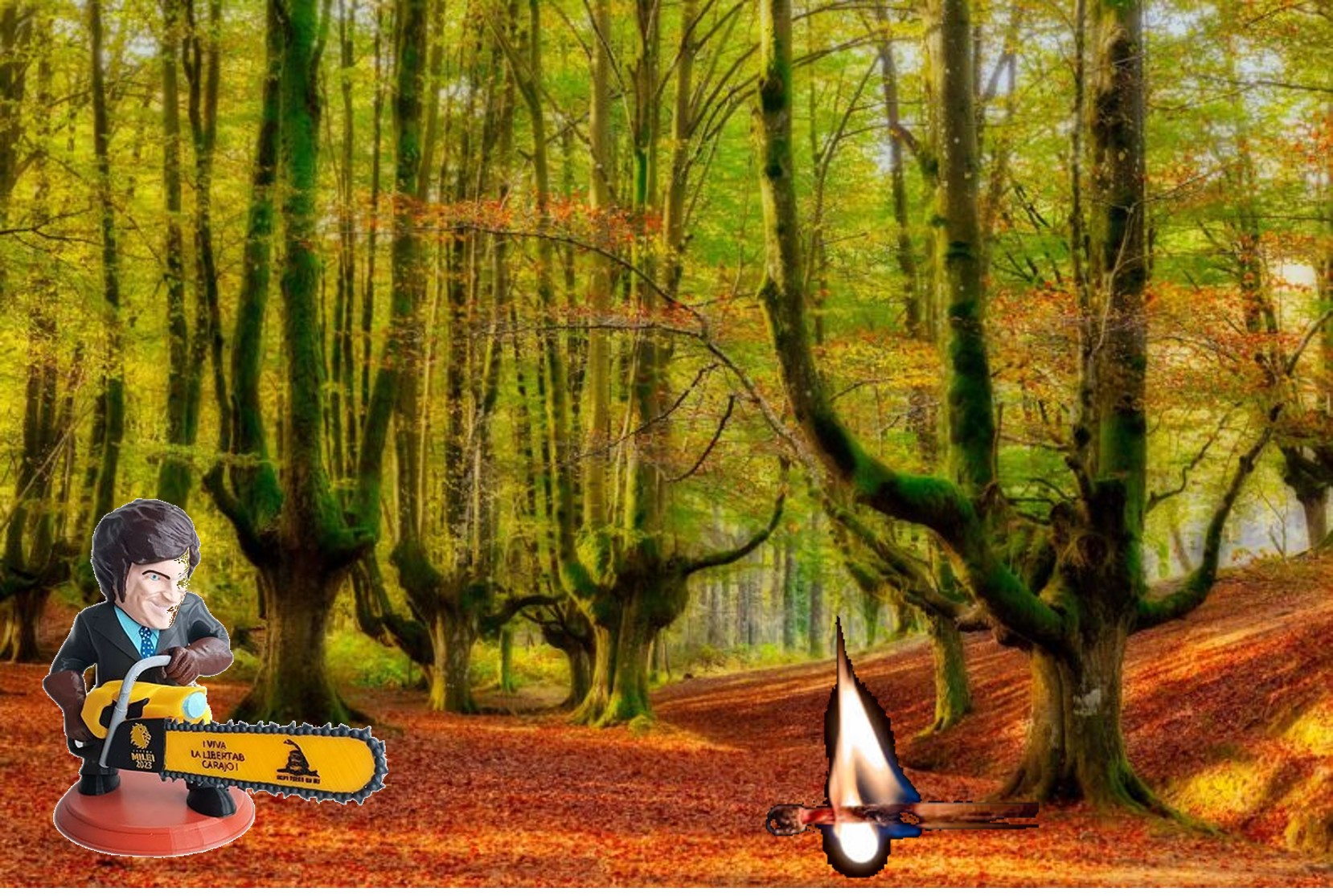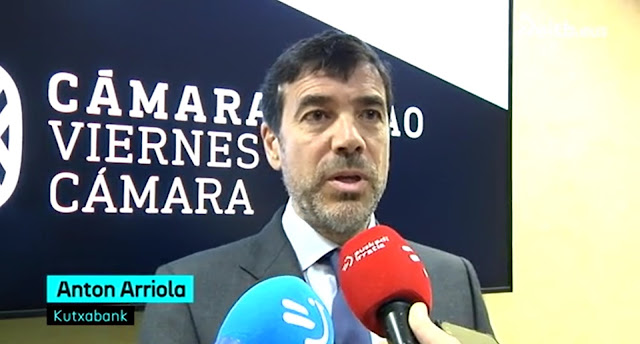The Basque needs a street! We Basques must take the street!
The other day, at the institute where I work, a student threw me: “If we are ten people and one does not know Basque, it is logical and respectful to speak in Spanish”. Behind this chain of words and the person who has launched it, there are countless concrete experiences that cannot be analyzed one by one: daily dialogues, speeches, facts, images, videos… And in them you can see a logic that has been imposed through it, the individualistic and false pacifist logic that governs the world.
This same logic prevailing in Euskal Herria (also) conceals the power relations between two or more people, caused by class, sex, origin, skin color, language, etc. Thus, they have led us to think as if we were all free and equal of power, hiding the systemic causes and consequences of our experiences and actions, making us invisible. I do it in Basque or Spanish, what does it matter? I'm free to do what I want. Besides, nobody feels bad, nobody feels bad. Let us respect everything, let everyone do whatever they want, peace is worth a lot…
This mindset obviously hides the structural power relations between us and establishes an apparent peace for the benefit of the oppressor and the oppressed. I translated to this student the question: “What if we do it whenever there is a Spanish, how many times can we speak in our language, in Basque?” The silence arose for a few seconds and another student answered, “Yes, but then everyone should learn Basque and it is very difficult to achieve it…”. Ttak, they began to think collectively, but of course, the structural is hard to change, too difficult for someone who has grown up surrounded by individualism.
The other day, at the institute where I work, a student threw me: “If we are ten people and one does not know Basque, it is logical and respectful to speak in Spanish”
More and more in recent years, I have the feeling that students relate Euskera with school and the norm, and in Spanish, on the contrary, with fun and freedom. While as a result of the prolonged struggle we have managed to institutionalize the Basque country to a (small) extent, the diglosia remains in a violent situation, but little is said about it, both in schools, in homes and on the street. This harsh reality has been hidden under the rules of individualism and pseudopeace. For, as Aresti said, peace harms the Basque, and any group pressured.
Realities often don't look at the naked eye, but if they point yes. That is why I believe that this is what we are now dealing with, in short, without giving up the institutional struggle that is imposed, we must recover the street, overcoming the tendency of the former to lower the latter. Beyond the exercise of individual rights and measured words, we need to talk about our dreams as a people, our enemies and our paths towards collective freedoms. To normalize the situations we live in daily life as “normal” and shake the streets. And on those streets, to join forces with other movements that want the freedom of the lower.
In the face of this system that destroys life, languages, peoples and everything that is not profitable for them, and in the face of the states that perpetuate it, in the face of those who separate us and isolate us from each other, in the face of those who want us to lose hope…, the vital need of all liberating movements is to work the community. To do this, we must become aware, get together, get rid of the older complexes, think in group and act. Sowing in place, in every possible area, igniting fights, provoking. We can't do it alone, with friends.
Our language and our community need a new scourge. The Basque Roots Week, to be held from 22 to 28 April, offers us an opportunity to do so, a turning point to motivate and empower us. It is an exercise of collective pride, open to all Euskaltzales who wish to participate.
Because the students of our institute, like everyone else, have the right to be aware of the situation and to be an active part of a liberating community, let us take the street to the Basque!
Sugoi Etxarri Zabaleta, member of the Basque Country
Bidali zure iritzi artikuluak iritzia@argia.eus helbide elektronikora
ARGIAk ez du zertan bat etorri artikuluen edukiarekin. Idatzien gehienezko luzera 4.500 karakterekoa da (espazioak barne). Idazkera aldetik gutxieneko zuzentasun bat beharrezkoa da: batetik, ARGIAk ezin du hartu zuzenketa sakona egiteko lanik; bestetik, egitekotan edukia nahi gabe aldatzeko arriskua dago. ARGIAk azaleko zuzenketak edo moldaketak egingo dizkie artikuluei, behar izanez gero.
You may not know who Donald Berwick is, or why I mention him in the title of the article. The same is true, it is evident, for most of those who are participating in the current Health Pact. They don’t know what Berwick’s Triple Objective is, much less the Quadruple... [+]
The article La motosierra puede ser tentadora, written in recent days by the lawyer Larraitz Ugarte, has played an important role in a wide sector. It puts on the table some common situations within the public administration, including inefficiency, lack of responsibility and... [+]
Is it important to use a language correctly? To what extent is it so necessary to master grammar or to have a broad vocabulary? I’ve always heard the importance of language, but after thinking about it, I came to a conclusion. Thinking often involves this; reaching some... [+]
The other day I went to a place I hadn’t visited in a long time and I liked it so much. While I was there, I felt at ease and thought: this is my favorite place. Amulet, amulet, amulet; the word turns and turns on the way home. Curiosity led me to look for it in Elhuyar and it... [+]
Adolescents and young people, throughout their academic career, will receive guidance on everything and the profession for studies that will help them more than once. They should be offered guidance, as they are often full of doubts whenever they need to make important... [+]
We have had to endure another attack on our language by the Department of Education of the Government of Navarre; we have been forced to make an anti-Basque change in the PAI program. In recent years, by law, new Model D schools have had to introduce the PAI program and have had... [+]
Public education teachers have the need and the right to update and improve the work agreement that has not been renewed in fifteen years. For this, we should be immersed in a real negotiation, but the reality is deplorable. In a negotiation, the agreement of all parties must be... [+]
A few weeks ago, on Diputación Street, in the centre of Vitoria-Gasteiz, two men threw a homeless person off the small landing outside the place where he slept. In addition to being thrown away, a metal railing was immediately placed in front of the lonja. Although the place... [+]
From linguistics or glotophobia and, of course, hatred against Basque, we have often seen our Basque become the dandruff of all sticks. Last of all, the president of Kutxabank, Anton Arriola, has been shaking our language and giving us galantas.The President of Kutxabank,
... [+]
Do not look for this connection from Ezkio or Altsasu, let alone crossing the Ebro River through Castejón. The connection, or rather the connections, between the Basque Y and the AVE of Navarre is already a reality. It is these links in the plural that should concern us and... [+]
Don't make a fuss, don't confront, don't victimize... and obey. As oppressed subjects, in this case as Basques, we talk, how many times have we had to listen to them? Ironically, two years ago, at the Euskalale Independentiston Meeting, Esne Arzallus said: "We have arrived here,... [+]
Aurten "Israel Premier Tech" txirrindularitza talde israeldarra ez da Lizarraldeko Miguel Indurain Sari Nagusia lasterketara etorriko. Berri ona da hori Palestinaren askapenaren alde gaudenontzat eta munstro sionistarekin harreman oro etetea nahi dugunontzat, izan... [+]
Intsumituek denbora luzez egindako borroka gogorra eta mingarria izan zen, baina irabazi zuten, eta garaipen hura behin betikoa izango zela uste genuen, atzera bueltarik gabea. Baina badirudi, politikari batzuen ahotik aterata, eskalada militaristari gorazarre egin eta berriz... [+]
Punto Bobo liburuaren irakurketan murgilduta, Itxaso Martin Zapirain egilearen Eromena, Azpimemoria eta Isiltasunak Idazten ikerketa lanean sentitu nuen egiazkotasun eta maila etikoarekin egin dut berriz ere topo. Eta hortaz, hara bueltatu. “Oihu izateko jaio zen isiltasun... [+]











